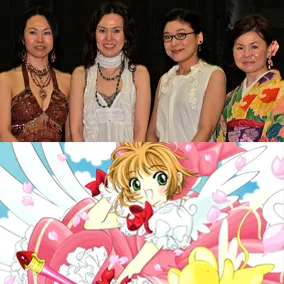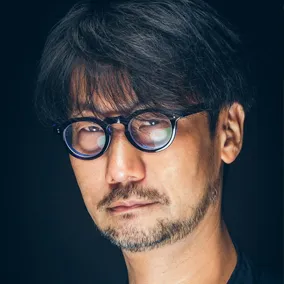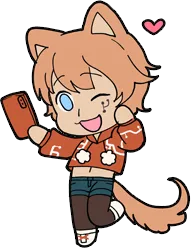What is a fujoshi?
Fujoshi (or, more inclusively, fujin) are and have always been an integral part of the online ecosystem. Despite being historically looked down upon and sometimes even reviled, their creativity and passion for their favorite series often drive the success of popular franchises—a fact that is only now beginning to be more widely recognized.
Overall, fujin are a highly diverse group of loosely-aligned folks brought together by their shared love of queer fictional relationships. Online-minded folks can think of them as cousins of the furry subculture, with whom they share similar challenges, including stigmatization and censorship. Rather than creating works focused on anthropomorphized animals, fujin center their own stories, art, comics, and complex worldbuilding around fictional relationships from pre-existing media—often between men, but with other gender expressions on the rise alongside them.
In our own conception, and with the evolving face of the community within an increasingly sex-negative web, being a fujin has morphed into a specific way of doing fandom. Fujin freely, joyfully, and unapologetically share their socially-stigmatized hyperfixations with each other, no matter how "rotten" society might consider them to be. They are the often queer, kinky, neurodivergent, and disabled id of the internet—frequently weird, sometimes perplexing, but overall harmless and full of unbridled passion.
Why FujoCoded?
Since the start, we've closely aligned our work with the transformational fandom and shipping communities. While we remain deeply embedded within them, we're making our connection to the fujin community explicit for a few reasons:
- Fujin better conveys the millenial viewpoint of our founder and other members of our community. While our contributors span many ages, our work is inexorably linked to the experience of growing up (and learning to "ship") in the web of the early 2000's.
- As traditional fandom activities (like writing fanfiction or drawing fanarts) have become more mainstream, they've stopped carrying the stigma they did in the past— at least on their own. However, the stigma against fujin, more closely associated with explicit, kinky, and queer works, remains strong.
- For years, the fujin community has been one of the canaries in the coalmine for problems now widespread in the online world. For example, recent backlash against western fujin has been often led by transphobic and sex-negative groups.
Regardless of the term we use, our work remains inclusive of any online subculture which celebrates the freedom to be yourself on the internet — even outside societal norms. We use fujoshi as a stand-in community for harmless online weirdos who just want to do their own thing in their corner, whether that is intensely shipping two or more fictional characters, obsessively collecting random facts about their favorite series, or participating in communal practices that may be hard to understand from the outside.
Origins of the Term
Fujoshi (lit. "rotten woman") was a pejorative name given to Japanese fans of BL media for going against social expectations of traditional femininity. In the early 2000s, as the popularity of anime and manga soared internationally, online BL spaces became a worldwide haven for (often female, queer, and/or neurodivergent) millennials seeking to explore their sexuality outside of normative constraints. This led to the term being adopted globally.
In recent years, fujoshi and its counterpart fudanshi (lit. "rotten man") have been reclaimed by fans of the genre and are often worn as a badge of honor. The fujin variant (lit. "rotten person") is also becoming popularized alongside them to accurately represent the diversity of the community.
Famous fujin
-

CLAMP
Famous for their contributions to their anime and manga community, CLAMP got their start drawing BL doujinshi.
-

Megan Thee Stallion
Famously known for shipping Naruto and Sasuke.
-

This French Publisher
-

Lee Majdoub
"Toxic yaoi is the shit!" — Lee Majdoub, TV and movies actor
-

Hideo Kojima
You know in your heart it's true.
